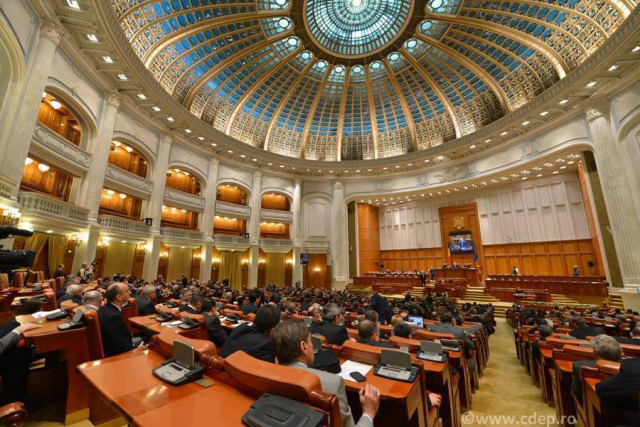The special pension reform continues
Parliament endorsed a reform of the special pension system, criticised both by the Opposition and by magistrates

Ştefan Stoica, 29.06.2023, 02:00
The last week of the current parliamentary
session was devoted to bills which target sensitive areas and which, precisely
for this reason, had been long postponed. On Monday, in an almost unprecedented
political effort, Romania’s Senators and Deputies scrapped the special pensions
granted to MPs. The piece of legislation under which Romanian MPs give up what
the media and the public have long regarded as an immoral right, has already
been signed into law by President Iohannis.
On Wednesday, 2 other overdue bills were
endorsed. One of them no longer allows individuals to receive both public
sector salaries and retirement benefits, and the other is aimed at reforming
the special pension system, which relies only in part on contributions during
the employment period, and which benefits magistrates, military personnel,
diplomats, parliamentary and court staff as well as aeronautical personnel.
In the first case, exemptions from the
restriction concerning public sector salaries and pension benefits paid to the
same individual at the same time triggered fiery criticism, primarily because
these exemptions cover local elected officials and MPs, alongside other
categories, such as teaching staff, healthcare professionals, specialist carers
and employees of the Romanian Academy, the National Bank of Romania, the
National Energy Regulatory Authority and the Communications Regulatory
Authority.
A final favourable vote was also cast on the special
pension reform bill, but the draft submitted by the Government was
significantly amended. In this final version, the implementation of the reform
is basically postponed 5 years and extended until 2043. Until 2028, prosecutors,
judges and military personnel may retire under the same conditions as before. The
retirement age will be increased in several stages from 60 to 65, and minimum
25-year relevant seniority will be a requirement for retiring magistrates.
Pension benefits in excess of the national
average net salary will be subject to taxation, but the rate will be 15%
instead of the 30% originally suggested. All these provisions have been
discussed with EU experts, the PM Marcel Ciolacu said.
The reform of the special pension system is a
milestone in the National Recovery and Resilience Plan. USR party in Opposition,
which would have liked special pensions to be scrapped altogether, voted
against the bill, arguing that it still leaves Romania with the same number of 210,000
special pension beneficiaries as before.
The Democratic Union of Ethnic Hungarians in
Romania, no longer a partner in the ruling coalition since the government
rotation, said a long time would pass until the system may rely exclusively on
lifetime contributions to pension funds. Even this version of the law, which according
to analysts saw its most radical provisions amputated, annoyed the Higher
Council of Magistrates. They disapprove of the amendments and claim Parliament
overlooked constitutional principles and endorsed measures that cause irreparable
damages to the independence of the judiciary and of magistrates. (AMP)






























